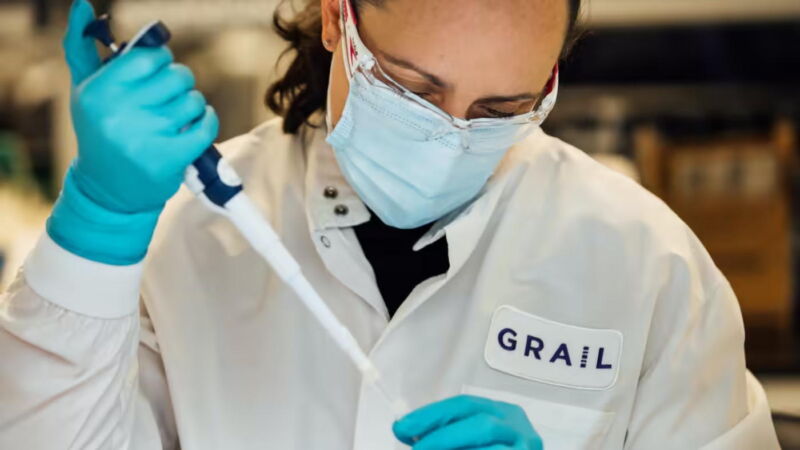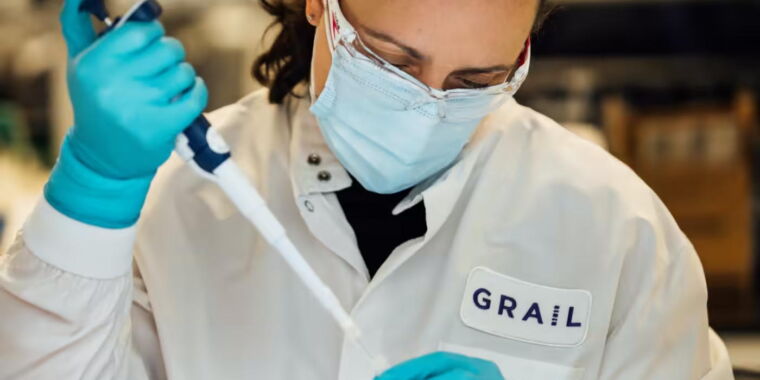
Grail
More than 400 patients who signed up for a groundbreaking oncology detection test developed by US biotech company Grail received erroneous letters last month suggesting they may have developed cancer.
According to an internal company document viewed by the Financial Times, 408 patients were falsely told they had a signal in their blood that suggested they might have cancer.
Grail said the letters were sent “in error” by its telemedicine provider PWNHealth and that his staff quickly contacted affected customers to reassure them that their test results were wrong.
The incident has raised concerns among some insurers testing Galleri, an early detection test for multiple cancers that claims to be able to identify more than 50 cancers with a single blood draw.
MassMutual, one of the largest US life insurers, said a “small number” of its policyholders were affected and it had “paused” its pilot as a result.
“We are aware that Grail has been proactively reaching out to all of our participants to address this issue as quickly as possible,” it said.
Principal, another major US life insurer that has customers affected by the flaw, said it was reviewing its relationship with Grail after the incident.
The episode highlights the risks to insurers in adopting early detection technologies, which hold the prospect of lowering claims payouts by keeping customers healthier.
Grail, a subsidiary of the world’s largest gene sequencing company, Illumina, sells Galleri for about $950 per test and markets it to insurers and large employers. The test scans so-called cell-free DNA for changes caused by cancer cells.
The test has been hailed as “revolutionary” and “advanced” by British and US health chiefs, although many experts have urged caution in introducing it before large-scale clinical trials prove it can save lives.
Grail said the erroneous letters were in no way related to or caused by an incorrect Galleri lab test result. The letters were inadvertently triggered by a problem with the configuration of the PWNHealth software, which was now disabled, it said in a statement.
PWNHealth said it immediately launched an investigation and addressed the underlying issue within an hour of learning about it, and put processes in place to ensure it didn’t happen again.
“In partnership with Grail, we started contacting affected individuals within 36 hours,” it added.
Grail, which will be presenting Galleri at the largest cancer conference in the US this weekend, said more than half of those who received the letters had not yet had their blood drawn for the Galleri test.
“No patient health information has been disclosed or violated as a result of this issue, and no patient harm or adverse events have been reported,” the company said.
In February, US life insurance company John Hancock announced it would expand access to Grail’s “first-of-a-kind” test, saying preventive care and early detection were critical to its commitment to helping customers helping “live longer, healthier and better”. It collaborated with Munich Re on the pilot announced in September.
A spokesman for John Hancock said the partnership with Grail has not changed. Munich Re declined to comment.
PWNHealth, a subsidiary of Everlywell, a digital health company, is an independent telemedicine provider that reviews Galleri test requests, prescribes the test and delivers the results to patients.
© 2023 The Financial Times Ltd. All rights reserved. May not be redistributed, copied or modified in any way.

